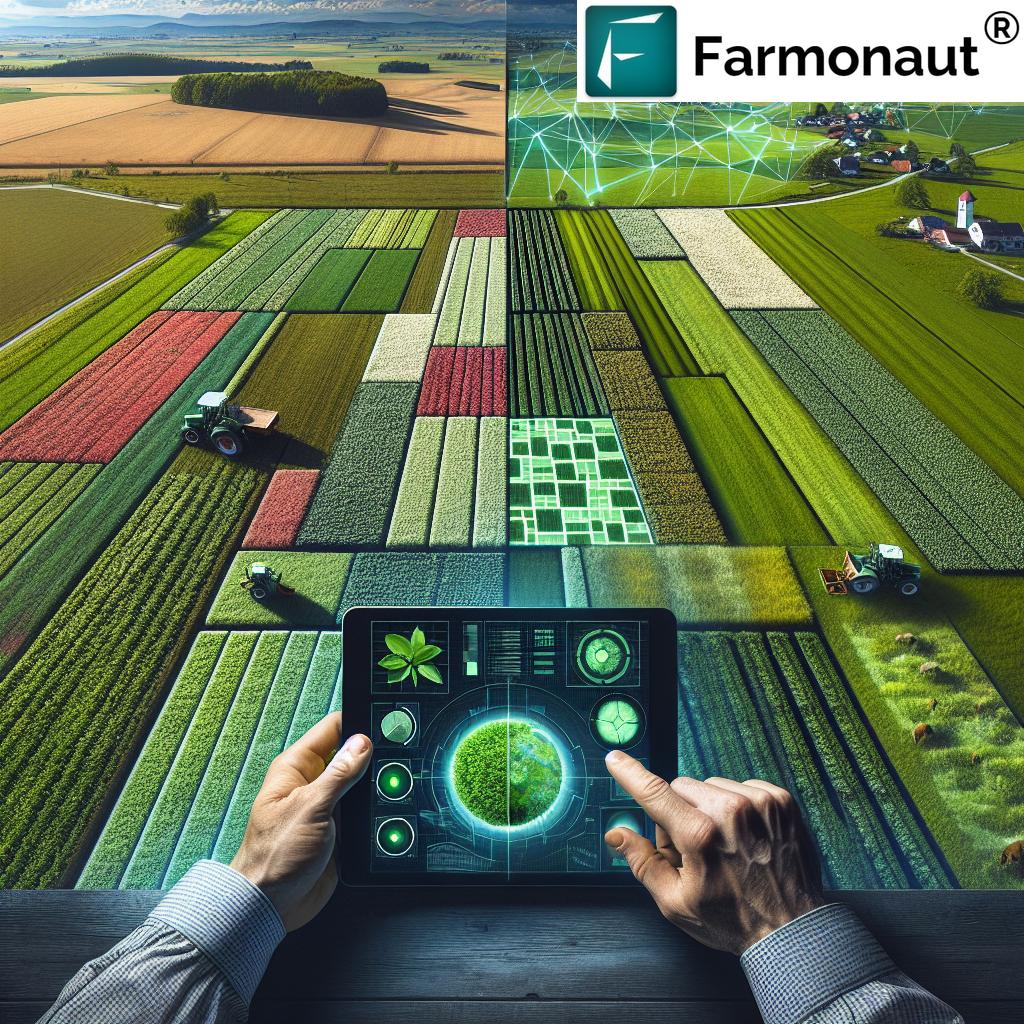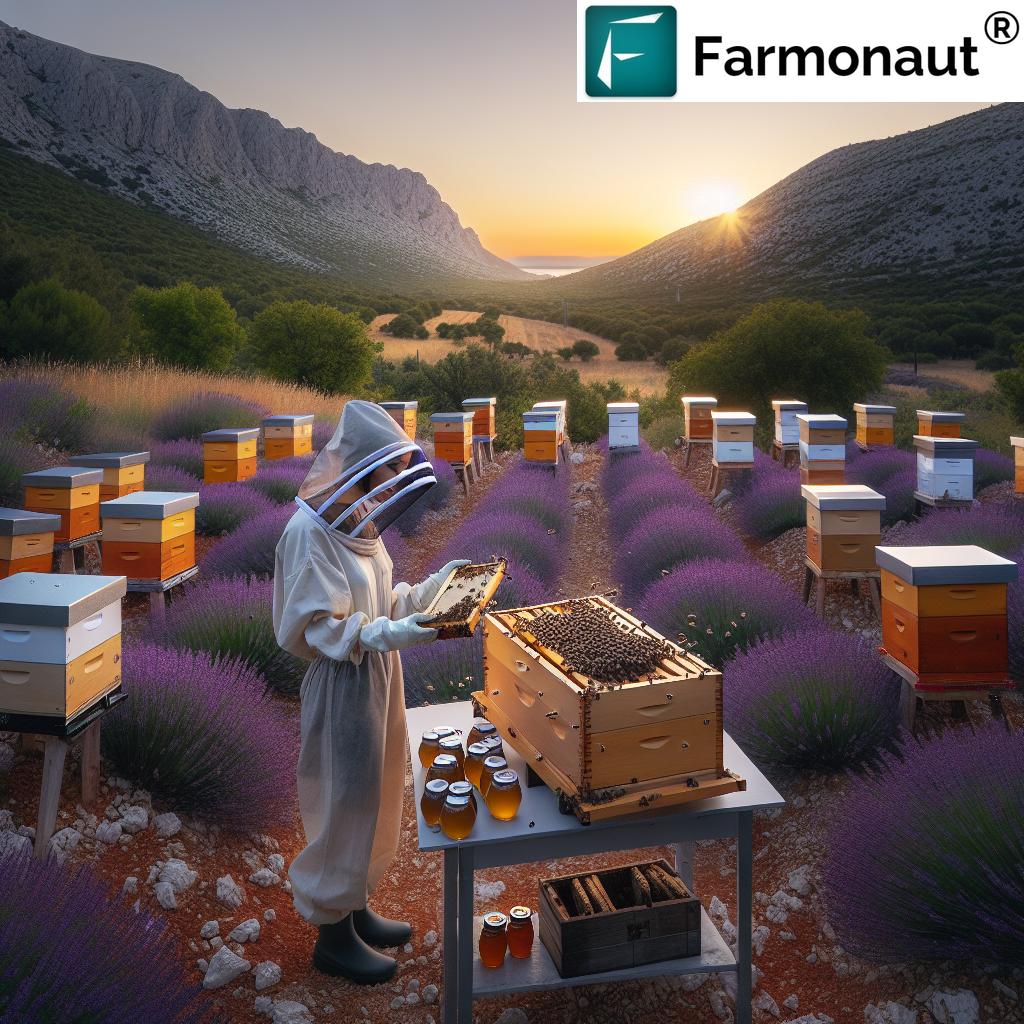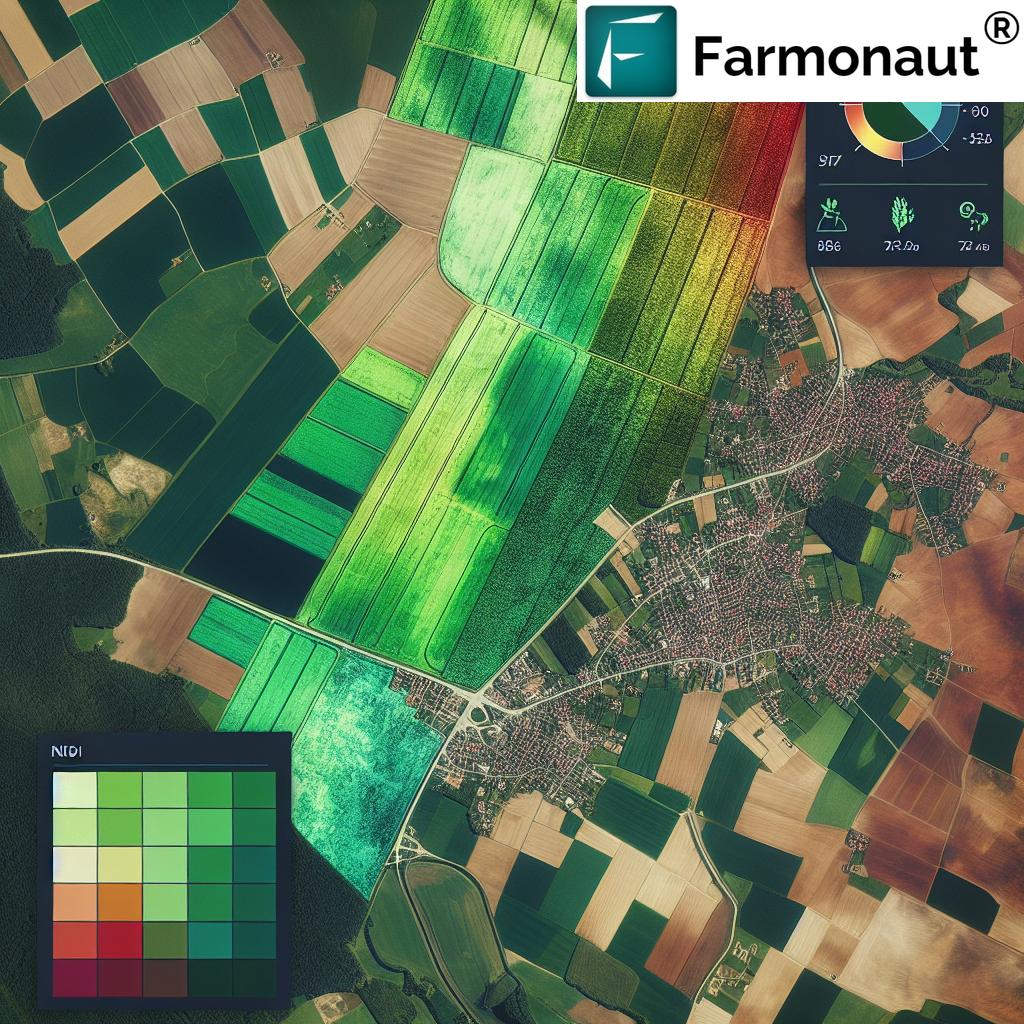EU Agricultural Cooperation: Slovakia and France Strengthen Ties for Sustainable Rural Development and Trade
“Slovakia and France’s agricultural cooperation impacts over 22 million farmers across the EU’s 27 member states.”
In the ever-evolving landscape of European agriculture, cooperation between member states plays a crucial role in shaping sustainable practices, fostering innovation, and ensuring food security. Today, we delve into the recent developments in agricultural cooperation between Slovakia and France, two nations at the forefront of strengthening ties for sustainable rural development and trade within the European Union.
On November 25, 2023, a significant meeting took place between Slovakia’s Agriculture and Rural Development Minister Richard Takac and Nicolas Suran, the Ambassador of France to Slovakia. This pivotal discussion highlighted the commitment of both nations to enhance their partnership in agricultural education and international trade agreements concerning agricultural commodities. As we explore the implications of this meeting, we’ll uncover the complexities of EU agricultural policy and the strategies being implemented to protect domestic farmers while promoting high-quality agricultural production.
The Significance of Slovakia-France Agricultural Cooperation
The collaboration between Slovakia and France in the agricultural sector is not just a bilateral affair; it resonates throughout the European Union. Both countries recognize the importance of working together to address common challenges and seize opportunities in an increasingly competitive global market.
- Shared expertise in sustainable farming practices
- Exchange of agricultural technology and innovation
- Joint efforts in rural development initiatives
- Alignment on EU agricultural policy objectives
Minister Takac emphasized that France serves as a significant agricultural ally for Slovakia. This alliance is crucial as Slovakia navigates the complexities of the EU agricultural landscape, particularly in light of potential EU expansion and its impacts on agricultural trade.
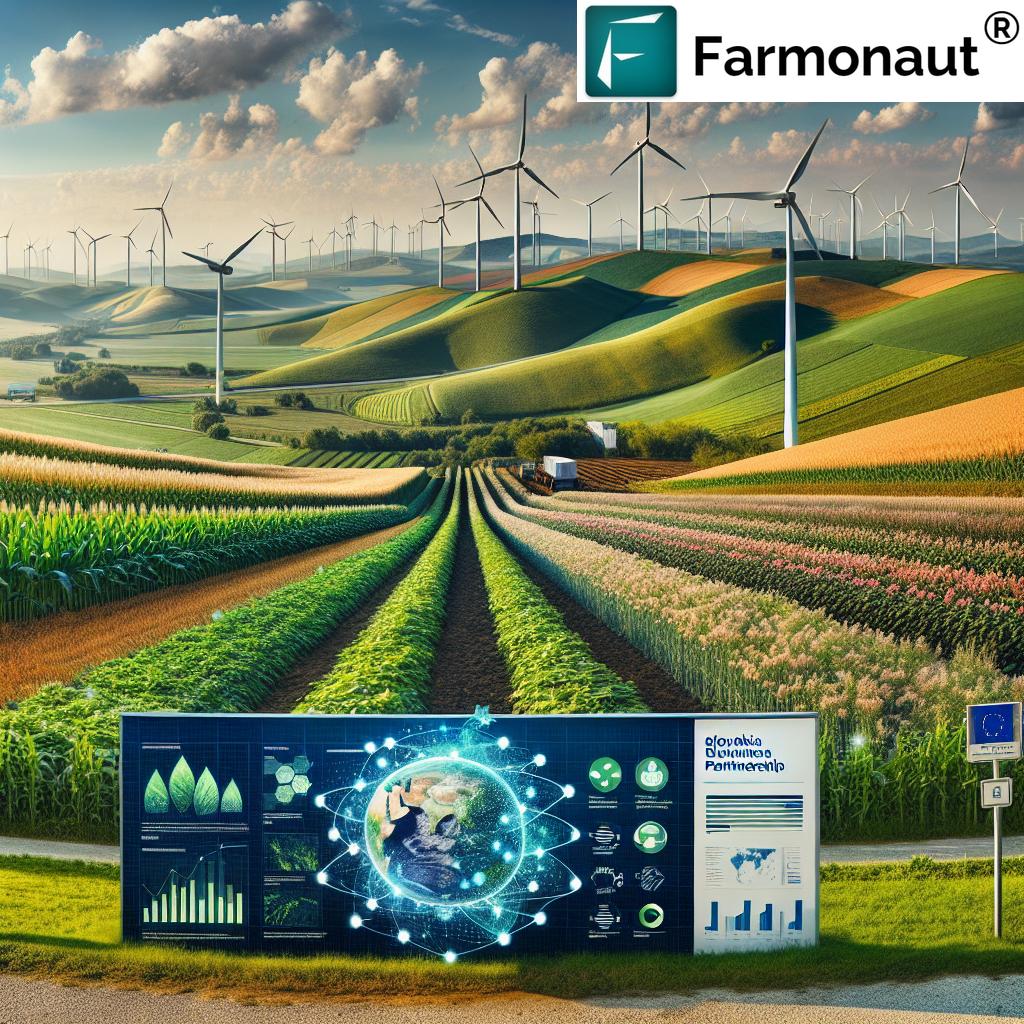
Enhancing Agricultural Education Initiatives
One of the key focuses of the Slovakia-France cooperation is the enhancement of agricultural education initiatives. Both countries recognize that the future of sustainable agriculture lies in nurturing a new generation of farmers equipped with the latest knowledge and skills.
- Development of joint agricultural research programs
- Student exchange programs for agricultural studies
- Workshops and seminars on innovative farming techniques
- Collaboration on agricultural technology training
By investing in agricultural education, Slovakia and France are laying the groundwork for long-term sustainability and competitiveness in the European agricultural sector. This focus on education aligns with the broader EU strategy to promote knowledge transfer and innovation in agriculture, forestry, and rural areas.
Strengthening International Trade Agreements
“EU agricultural trade agreements influence approximately 40% of the global food and beverage market, worth over €1.1 trillion annually.”
The meeting between Minister Takac and Ambassador Suran also highlighted the importance of international trade agreements in the agricultural sector. As EU member states, both Slovakia and France play crucial roles in shaping the bloc’s trade policies, particularly those concerning agricultural commodities.
- Harmonization of trade standards for agricultural products
- Promotion of fair trade practices within the EU and with external partners
- Strategies to enhance market access for European agricultural goods
- Measures to protect EU farmers from unfair competition
The strengthening of trade ties between Slovakia and France contributes to a more unified EU approach to agricultural trade, enhancing the bloc’s position in global markets while ensuring the protection of domestic producers.
Protecting Domestic Markets and Ensuring Quality
A critical concern expressed by Minister Takac during the meeting was the protection of the domestic market and the promotion of high-quality agricultural production. This issue is particularly pertinent given the ongoing discussions surrounding Ukraine’s potential accession to the European Union and its implications for agricultural trade.
Slovakia, along with two other EU countries, has implemented a ban on agricultural imports from Ukraine. This decision underscores the complexities of balancing open trade with the protection of domestic farmers and food safety standards.
- Implementation of stringent quality control measures for imports
- Support for local farmers to enhance competitiveness
- Promotion of EU quality standards in agricultural production
- Strategies to maintain fair market conditions for EU producers
The stance taken by Slovakia highlights the need for a unified EU approach to ensuring that all producers, whether within the EU or from potential member states, adhere to the same rigorous standards applicable to EU farmers.
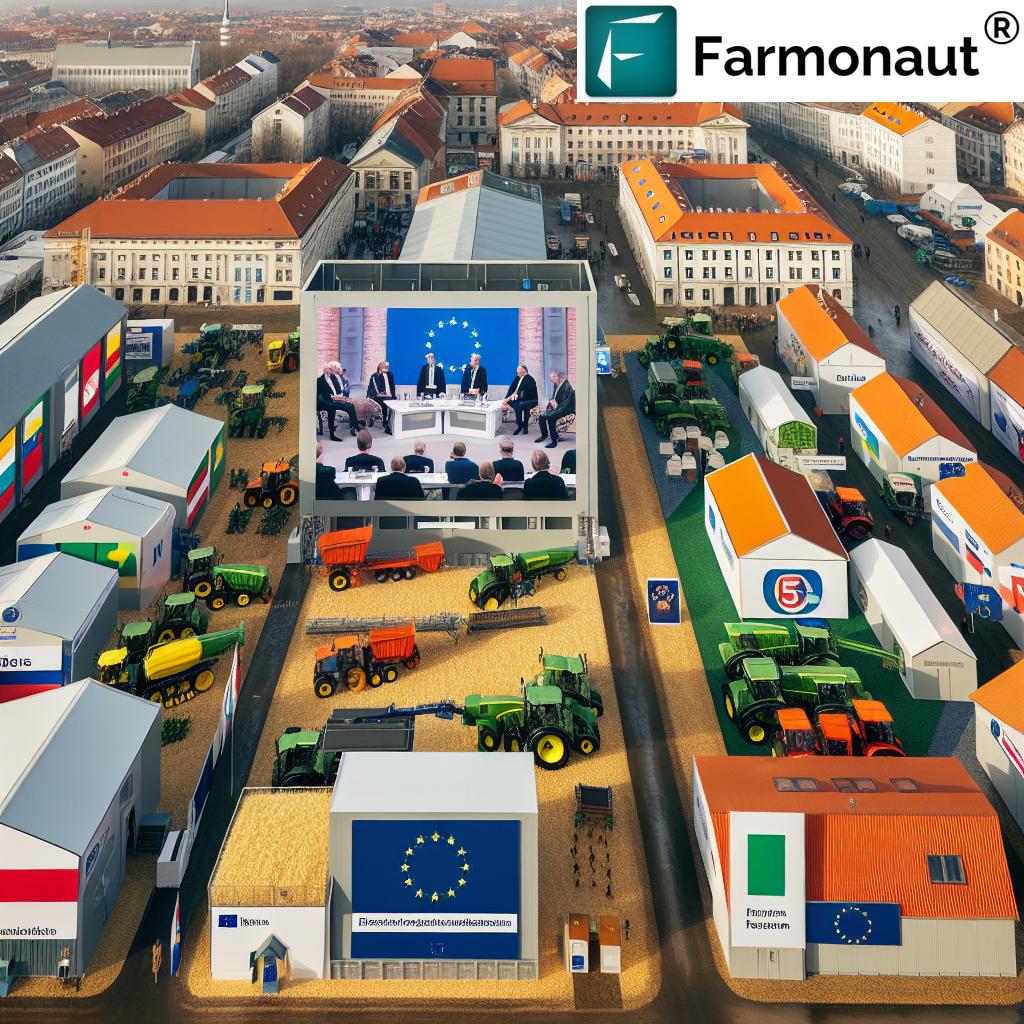
Food Safety Regulations in Europe: A Priority for Cooperation
The collaboration between Slovakia and France also emphasizes the critical importance of food safety regulations within the European Union. As both countries work towards strengthening their agricultural ties, ensuring the highest standards of food safety remains a top priority.
- Harmonization of food safety protocols across member states
- Joint research initiatives on food contaminant detection
- Implementation of advanced traceability systems
- Collaboration on rapid alert systems for food safety issues
By aligning their efforts in this area, Slovakia and France contribute to the overall enhancement of food safety standards across the EU, protecting consumers while facilitating smoother trade within the single market.
Sustainable Rural Development: A Shared Vision
At the heart of the Slovakia-France agricultural cooperation lies a shared commitment to sustainable rural development. Both nations recognize that the future of European agriculture depends on creating vibrant, economically viable rural communities.
- Implementation of eco-friendly farming practices
- Support for small and medium-sized agricultural enterprises
- Development of rural infrastructure and digital connectivity
- Promotion of agritourism and diversification of rural economies
Through their collaborative efforts, Slovakia and France are working towards a model of rural development that balances economic growth with environmental sustainability, ensuring the long-term viability of rural areas across Europe.
Agricultural Market Competitiveness: Strategies for Success
In an increasingly globalized market, enhancing the competitiveness of European agriculture is crucial. The cooperation between Slovakia and France addresses this challenge head-on, focusing on strategies to boost the competitive edge of EU farmers in both domestic and international markets.
- Investment in agricultural research and development
- Promotion of EU agricultural products in global markets
- Support for young farmers and agricultural entrepreneurs
- Development of value-added products and niche markets
By combining their strengths and resources, Slovakia and France are contributing to a more resilient and competitive European agricultural sector, capable of meeting the challenges of the 21st century.
The Role of Technology in Agricultural Innovation
As we discuss the cooperation between Slovakia and France, it’s important to highlight the role of technology in driving agricultural innovation. In this context, companies like Farmonaut are at the forefront of revolutionizing farming practices through advanced satellite-based solutions.
Farmonaut offers cutting-edge farm management tools that align perfectly with the goals of EU agricultural cooperation. Through its satellite-based crop health monitoring, AI advisory systems, and blockchain-based traceability solutions, Farmonaut empowers farmers to make data-driven decisions, optimize resource use, and enhance productivity.
Explore Farmonaut’s innovative solutions:
For developers interested in integrating Farmonaut’s powerful satellite and weather data into their own applications, check out our API and API Developer Docs.
Challenges and Opportunities in EU Agricultural Imports
The discussion between Slovakia and France also touched upon the challenges posed by agricultural imports, particularly in light of potential EU expansion. This issue highlights the delicate balance between maintaining open trade policies and protecting the interests of domestic farmers.
- Assessment of the impact of imports on local agricultural markets
- Development of strategies to ensure fair competition
- Implementation of safeguard measures to protect sensitive agricultural sectors
- Promotion of EU quality standards for imported agricultural products
By addressing these challenges collaboratively, Slovakia and France are working towards a more balanced approach to EU agricultural imports, one that benefits both producers and consumers across the Union.
Comparative Analysis of Agricultural Cooperation between Slovakia and France
| Area of Cooperation | Slovakia | France |
|---|---|---|
| Sustainable Rural Development | Focus on small-scale farming and agritourism | Emphasis on large-scale sustainable agriculture practices |
| Agricultural Education | Developing vocational training programs | Leading in agricultural research and innovation |
| Trade Relations | Implementing protective measures for domestic markets | Promoting open trade while supporting EU farmers |
| Food Safety Regulations | Aligning with EU standards, focus on local production | Setting benchmarks in food safety and quality control |
| Agricultural Technology Innovation | Adopting precision farming techniques | Pioneering in agritech research and development |
The Future of European Agricultural Cooperation
As we look to the future, the cooperation between Slovakia and France serves as a model for broader European agricultural collaboration. Their joint efforts in addressing key challenges and opportunities in the sector pave the way for a more integrated and resilient EU agricultural policy.
- Development of common strategies for climate change adaptation in agriculture
- Promotion of circular economy principles in farming practices
- Enhancement of digital skills among rural populations
- Creation of pan-European agricultural innovation hubs
By working together, EU member states can create a more sustainable, competitive, and innovative agricultural sector that benefits farmers, consumers, and rural communities across Europe.
Conclusion: A Stronger, More United European Agriculture
The recent meeting between Slovakia’s Agriculture Minister and the French Ambassador marks a significant step towards a more cohesive and cooperative European agricultural sector. By focusing on key areas such as sustainable rural development, agricultural education, and international trade agreements, Slovakia and France are setting an example for other EU member states to follow.
As challenges like climate change, food security, and market volatility continue to shape the global agricultural landscape, the importance of strong partnerships within the EU cannot be overstated. The collaboration between Slovakia and France demonstrates how member states can work together to protect domestic interests while contributing to the broader goals of the European Union.
Looking ahead, we can expect to see more innovative approaches to agricultural cooperation, driven by technological advancements and a shared commitment to sustainability. Companies like Farmonaut, with their satellite-based farm management solutions, will play an increasingly important role in shaping the future of European agriculture, providing farmers with the tools they need to thrive in a changing world.
As we continue to monitor developments in EU agricultural policy and cooperation, one thing is clear: the strength of European agriculture lies in its unity, diversity, and ability to adapt to new challenges. The partnership between Slovakia and France is just one example of how EU member states are working together to build a more resilient, sustainable, and prosperous agricultural sector for generations to come.
FAQ: EU Agricultural Cooperation
Q1: What are the main goals of the agricultural cooperation between Slovakia and France?
A1: The main goals include enhancing agricultural education initiatives, strengthening international trade agreements, protecting domestic markets, ensuring high-quality agricultural production, and promoting sustainable rural development.
Q2: How does this cooperation impact EU agricultural policy?
A2: This cooperation contributes to shaping a more unified EU approach to agricultural challenges, influencing policies on trade, food safety, rural development, and market competitiveness across the Union.
Q3: What role does technology play in this agricultural cooperation?
A3: Technology, particularly innovations in satellite-based farm management and AI advisory systems, plays a crucial role in enhancing agricultural productivity, sustainability, and competitiveness within the EU.
Q4: How does the cooperation address the challenges of EU agricultural imports?
A4: The cooperation focuses on developing strategies to ensure fair competition, implementing safeguard measures for sensitive agricultural sectors, and promoting EU quality standards for imported products.
Q5: What are the long-term benefits of this agricultural cooperation for EU farmers?
A5: Long-term benefits include improved access to agricultural education and technology, enhanced market competitiveness, stronger protection against unfair competition, and support for sustainable farming practices.









